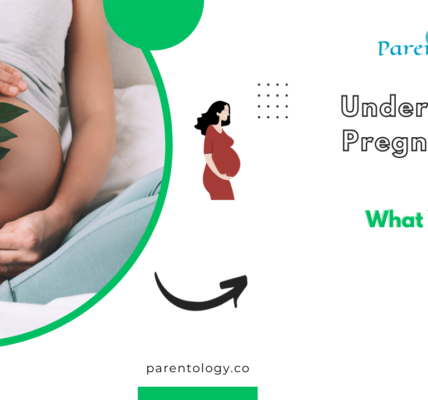Stomach Pain During Pregnancy: Understanding Causes and Finding Relief
Pregnancy is an incredible journey filled with joy and anticipation. However, it’s not uncommon for expectant mothers to experience stomach pain, which can sometimes be distressing. Understanding the causes of stomach pain during pregnancy and finding ways to alleviate this discomfort is crucial for a smoother pregnancy experience.
Causes of Stomach Pain During Pregnancy
1. Round Ligament Pain
- Description: Occurs due to the stretching of ligaments supporting the uterus.
- Remedy: Change positions slowly, gentle stretching exercises.
2. Gas and Bloating
- Description: Hormonal changes may lead to increased gas, causing discomfort.
- Remedy: Eating smaller meals, avoiding gas-inducing foods.
3. Constipation
- Description: Common during pregnancy due to hormonal changes and pressure on the intestines.
- Remedy: Increase fiber intake, stay hydrated.
4. Braxton Hicks Contractions
- Description: Practice contractions that prepare the body for labor.
- Remedy: Relaxation techniques, changing positions.
5. Urinary Tract Infections (UTIs)
- Description: Infections affecting the urinary system can cause abdominal discomfort.
- Remedy: Prompt medical attention, antibiotics as prescribed.
6. Ectopic Pregnancy
- Description: Occurs when the fertilized egg implants outside the uterus.
- Symptoms: Severe abdominal pain, vaginal bleeding, dizziness.
- Immediate Medical Attention Required: Urgent medical care is essential to avoid complications.
7. Gastric Issues
- Description: Acid reflux or gastritis can lead to discomfort in the stomach area.
- Remedy: Eat smaller meals, avoid spicy or acidic foods, and maintain an upright posture after meals.
8. Abdominal Muscle Strain
- Description: Straining of abdominal muscles due to sudden movements or lifting heavy objects.
- Remedy: Avoid heavy lifting, practice proper body mechanics.
9. Appendicitis
- Description: Inflammation of the appendix causing sharp pain in the lower right abdomen.
- Immediate Medical Attention Required: Surgical intervention may be necessary.
10. Preterm Labor
- Description: Contractions before the 37th week of pregnancy.
- Symptoms: Menstrual-like cramps, lower backache, vaginal discharge.
- Immediate Medical Attention Required: Urgent medical assessment is crucial to prevent premature birth.
Tips to Ease Stomach Pain While Pregnant
1. Proper Posture
- Maintain good posture while sitting, standing, and sleeping.
2. Warm Compress
- Apply a warm compress to the affected area for relief.
3. Pelvic Exercises
- Practice pelvic floor exercises to alleviate pain.
4. Balanced Diet
- Consume a diet rich in fiber and nutrients to aid digestion.
5. Hydration
- Stay hydrated throughout the day to prevent constipation.
6. Supportive Clothing
- Wear comfortable maternity clothing that doesn’t constrict the abdomen.
7. Regular Exercise
- Engage in prenatal exercises recommended by healthcare providers.
8. Stress Reduction Techniques
- Practice relaxation methods like deep breathing or prenatal yoga to alleviate stress-related stomach discomfort.
9. Use of Pregnancy Pillows
- Utilize specialized pillows for better support and comfort during sleep.
10. Attend Prenatal Classes
- Join prenatal classes that focus on exercises and relaxation techniques for pain management.
Coping Strategies for Stomach Pain During Pregnancy
1. Acupuncture and Acupressure
- Description: Some pregnant individuals find relief through acupuncture or acupressure sessions conducted by trained professionals. These techniques may help alleviate discomfort.
2. Warm Baths or Showers
- Description: Soaking in a warm bath or standing under a warm shower can relax muscles and ease abdominal discomfort.
3. Maternity Support Belts
- Description: Maternity belts or bands offer support to the lower back and abdomen, providing relief from discomfort.
4. Dietary Modifications
- Description: Avoiding spicy, greasy, or heavy foods can help minimize stomach irritation. Opt for smaller, more frequent meals to aid digestion.
5. Herbal Remedies
- Description: Some herbal teas or supplements, like chamomile or peppermint, might alleviate mild stomach pain. However, always consult with a healthcare provider before using any herbal remedies during pregnancy.
6. Meditation and Breathing Techniques
- Description: Practicing mindfulness, meditation, or specific breathing exercises can assist in relaxation and reduce stress, potentially easing stomach discomfort.
7. Tummy Rubs and Gentle Massages
- Description: Lightly massaging the abdomen with circular motions or applying gentle pressure might help relax tense muscles.
8. Consultation with a Pelvic Floor Therapist
- Description: Pelvic floor therapists can provide exercises and techniques to strengthen and support the pelvic region, potentially reducing abdominal discomfort.
9. TENS Therapy
- Description: Transcutaneous Electrical Nerve Stimulation (TENS) therapy involves the use of a device that sends low-voltage electrical impulses to specific areas, offering pain relief.
10. Alternative Therapies
- Description: Consider exploring alternative therapies like chiropractic care or osteopathy, after consulting with your healthcare provider, to find potential relief from stomach pain.
Expert Insights and Advice
Seeking professional advice from healthcare providers is crucial. Here are some expert tips to manage stomach pain during pregnancy:
- Always consult your obstetrician before taking any medication.
- Avoid self-diagnosis and promptly report any severe or persistent pain.
- Maintain a record of pain episodes, detailing their duration and intensity for better assessment.
FAQs About Stomach Pain During Pregnancy
Q 1. Can stomach pain during pregnancy indicate a serious issue?
Ans 1: While occasional discomfort is common, persistent or severe pain should be evaluated by a healthcare professional to rule out any complications.
Q 2. Is it normal to experience stomach pain in the early stages of pregnancy?
Ans 2: Yes, mild cramping can be a normal part of early pregnancy as the uterus expands.
Q 3. What positions can help alleviate stomach pain?
Ans 3: Changing positions frequently, such as lying on your side or taking a warm bath, may offer relief.
Q 4. Are there specific foods to avoid to reduce stomach pain during pregnancy?
Ans 4: Certain gas-inducing foods like beans, cabbage, and carbonated drinks might exacerbate discomfort.
Q 5. Should I be concerned about every instance of stomach pain during pregnancy?
Ans 5: It’s essential to monitor and report any severe or persistent pain to your healthcare provider for proper evaluation and guidance.
Q 6. Can stress or anxiety contribute to stomach pain during pregnancy?
Ans 6: Yes, stress can exacerbate digestive issues, leading to stomach discomfort. Engaging in relaxation techniques or seeking support may help alleviate it.
Q 7. How can I differentiate between normal discomfort and a serious issue?
Ans 7: Persistent, severe, or sudden onset of pain, accompanied by other symptoms like fever or bleeding, should be promptly addressed by a healthcare professional.
Q 8. Is exercise beneficial for easing stomach pain during pregnancy?
Ans 8: Gentle exercises and stretching under professional guidance can help manage discomfort.
Q 9. Can over-the-counter medications be used for stomach pain during pregnancy?
Ans 9: Always consult your healthcare provider before taking any medication during pregnancy.
Q 10. Are there any warning signs indicating immediate medical attention is needed for stomach pain during pregnancy?
Ans 10: Sudden and severe abdominal pain accompanied by bleeding, fever, or fainting warrants immediate medical attention.
Conclusion
Navigating stomach pain during pregnancy can be challenging, but with various strategies and support, managing discomfort becomes more feasible. Remember, individual responses to pain relief methods may vary, so it’s crucial to communicate openly with healthcare professionals throughout your pregnancy journey.
For a more comprehensive understanding and guidance on managing stomach pain during pregnancy, visit Parentology.
Remember, every pregnancy is unique, and consulting healthcare providers is crucial for personalized guidance and care.



